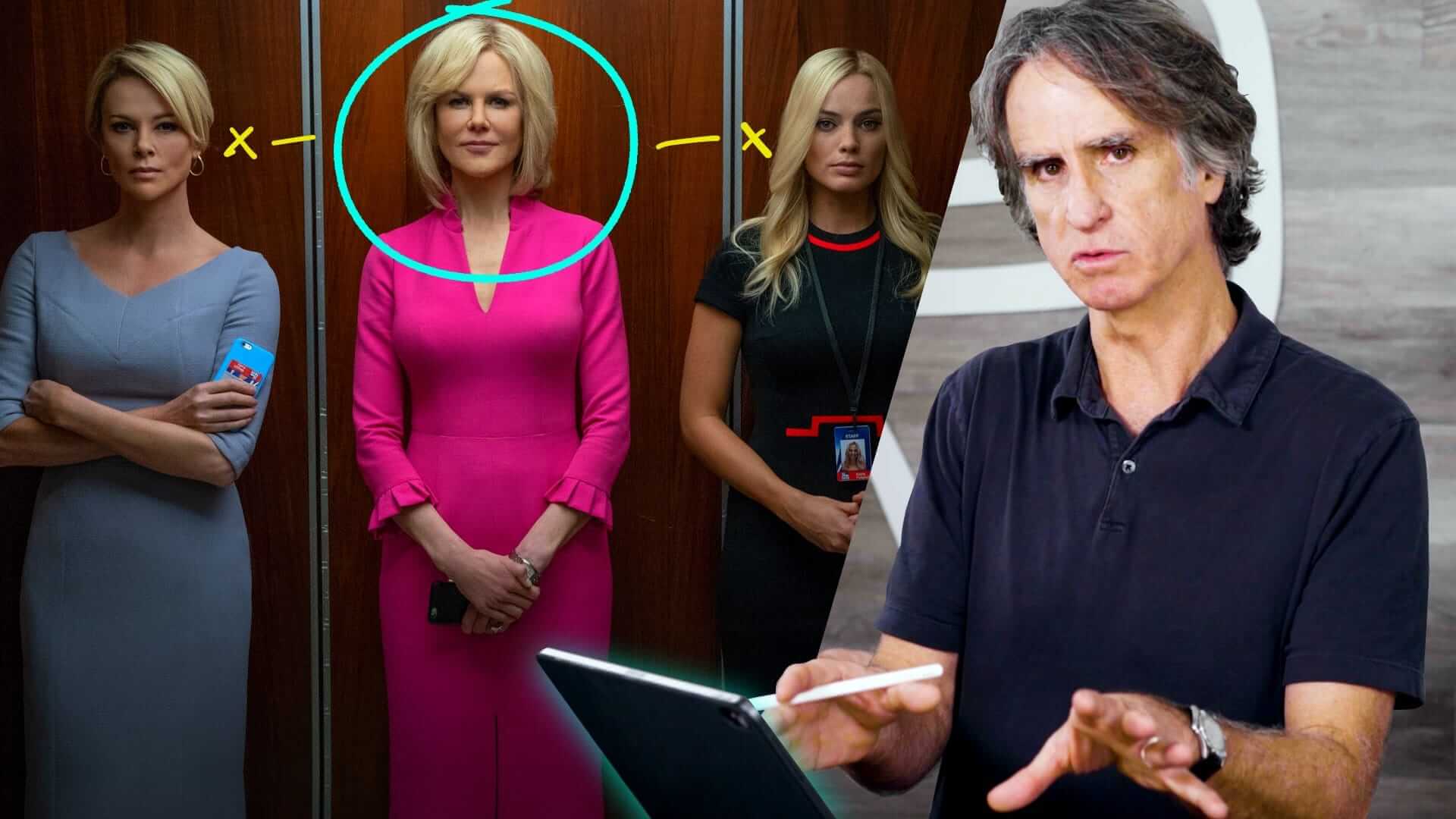Jay Roach has filmed some of the greatest comedies of all time with his work on the Austin Powers trilogy and Meet the Fockers. In recent years, he’s turned his attention to more politically-oriented stories like Trumbo and the upcoming Bombshell. As part of our ongoing partnership with Sundance Co//ab, Jay Roach recently sat down with us to discuss how he created a claustrophobic, tense elevator scene for Bombshell.
Directed by Jay Roach
Bombshell (2019)
Bombshell focuses on three women who worked for Fox News and set out to expose the sexual harassment perpetuated by CEO Roger Ailes. The film is based on a true story and stars Margot Robbie, Nicole Kidman, and Charlize Theron.
Bombshell | Trailer
Filmmaking 101
Show, don’t tell
Before Kayla gets onto the elevator, we see her get a phone call. We then see several people around her give her knowing glances. Kayla only says a few words, none of them incriminating, and yet, everyone knows what’s going on.
They know something is happening between Roger Ailes and Kayla, but no one will speak up for her, and no one wants her to speak out. Dialogue of one character conveying this fact would’ve been too on the nose, so instead, we get frames dedicated to people looking at Kayla, giving the sense that she’s being surveilled.
With little dialogue, Roach has set the scene. We’re now ready to get inside the elevator.
Fill Out the Scene
Use extras wisely
As we discussed in our blog about Alex Woff, there are various ways you can utilize your background extras to make a scene come alive. Roach believed the elevator scene would’ve looked too “stage-y” if all three women came into the elevator at roughly the same time. To avoid this, he lets Megyn enter with a couple of other people to be more natural.
You need to really think about who is in the shot and what they would realistically be doing. You wouldn’t want young children sitting perfectly still in awkward stances like what happened in Everything Must Go.
Everything Must Go | Awkward Playtime
You need to look at your movie frame as an entire world. Who else would be there? What would they be trying to do? Adding a couple extras to the elevator makes sense because this is a major corporation, so of course other people would need to take the elevator down. It makes sense in the scene, and it actually adds to the discomfort.
Storyboard, Storyboard, Storyboard
Determine the essentials in the scene
Storyboarding is one of the most advantageous things you can do before going into production. Time is money when you’re on set, so if you know precisely what you need to do and what camera movements you want ahead of time, you can prevent a lot of headaches down the road.
Roach did exactly this and laid out how each scene should look and what needed to be in the frame. He determined what type of focus to use and when there would be turning points in the scene.
In the event you need any assistance creating your own storyboards, StudioBinder is here to help.
Create Storyboards with StudioBinder • Subscribe on YouTube
Crafting Empathy
Use long lenses with shallow focus
Part of creating a tense scene means you feel empathy for the character. You don’t want anything bad happening to her. While there are various ways to convey this feeling, like through dialogue or lighting, don't ignore the impact provided by a long lens with a shallow focus.
During one part of the elevator scene, Kayla is filmed in this way. She’s the focal point of the shot while Megyn is blurred out in the background. She’s so close to someone in power who could help her out of this situation, but she feels more alone than ever before.
This serves as a “empathy machine.” With a single shot with no lines, we know Kayla is in this alone. No one will come to her rescue now.
RELATED POSTS
Choreographing Is Vital
Make the geography clear
It is one thing to do a table read. It is another thing entirely to actually show up on set and have to stage everyone and everything.
The staging should make sense for the tone you want to set. For the elevator scene, Megyn is an observer while Kayla is trying to hide. Kayla is off in the far-right corner while Megyn is far left. The scene is given enough room to breathe so that you know where everyone is standing and how they all generally feel about each other.
Aside from one line from Gretchen, no one talks to one another. They all keep a relative distance. The geography works for close quarters, and we understand the dynamics at play.
Script and Cast
Always remember the script
One final point. As a director, it’s easy to get caught up in the complexities of filmmaking. You have to figure out what lenses and cameras would be best for the story. However, at the end of the day, as long as you have a great script and have casted the right people, most of your job is done for you.
The results speak for themselves. You could have the best equipment and best team available, but if the script isn’t solid and the actors aren’t good, then it won’t get you anywhere. Your main goal is to serve the script, and the rest should come naturally.
UP NEXT
In the Frame: Catherine Hardwicke
Jay Roach has plenty of experience behind the camera. But there is always more to learn. Check out what Catherine Hardwicke had to say about the ballet studio fight scene in Twilight. She never lost sight of the emotion in the scene, making for more impactful moments.
Up Next: Catherine Hardwicke on Twilight →
Share your vision with elegant shot lists and storyboards.
Create robust and customizable shot lists. Upload images to make storyboards and slideshows.
